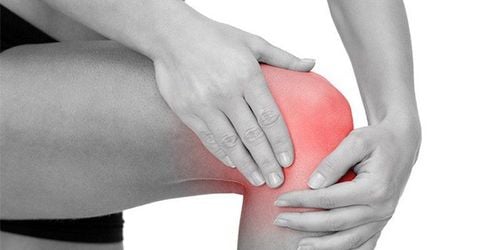This is an automatically translated article.
Dolowan belongs to the group of pain relievers, non-steroidal anti-inflammatory drugs (NSAIDs). Drugs are often prescribed to treat the symptoms of musculoskeletal disorders. So, how to use the drug and how to use it to get the most effective?
1. What is Dolowan?
Dolowan's main ingredient is Aceclofenac - a non-steroidal anti-inflammatory, analgesic, antipyretic (NSAID) drug, a phenylacetic derivative. The drug is highly effective in reducing pain caused by musculoskeletal diseases.
Dolowan anti-inflammatory pain reliever by inhibiting an enzyme important in prostaglandin synthesis is the enzyme cyclooxygenase (COX). Prostaglandin is a chemical mediator involved in the inflammatory process, causing pain in the organ, inhibiting this substance will increase the analgesic and anti-inflammatory effects.
Dolowan drug is well absorbed from the gastrointestinal tract, but taking it with food will slow down the absorption of the drug. After entering the body, the drug is metabolized in the liver, strongly bound to plasma proteins and excreted in the urine.
2. Indications of the drug Dolowan
Dolowan is indicated for use in the following pathological cases:
Chronic arthritis due to degenerative joint disease. Rheumatoid arthritis with or without joint deformity. Ankylosing spondylitis disease. Pain relief, mild to moderate inflammation caused by: Injuries, joint pain due to improper posture, toothache,...
3. Contraindications of the drug Dolowan
Dolowan drug should not be used in patients with the following conditions
Allergy to Aceclofenac, non-steroidal anti-inflammatory drugs or any other ingredients of Dolowan. Patient has asthma. Patients with active peptic ulcer disease or a history of gastrointestinal bleeding should not use Dolowan. Patients with moderate to severe renal and hepatic impairment.
4. Notes when using the drug Dolowan
Patients with gastrointestinal disorders, a history of gastrointestinal ulcers when taking Dolowan should be cautious because it may increase the severity of symptoms on the gastrointestinal tract. Dolowan should be used with caution in patients recovering from surgery and having inflammatory diseases. Monitor liver/renal function before and during treatment in patients with moderate or higher renal impairment. The safety of the drug in the fetus and child has not been fully studied, so consider the benefits when using it for pregnant and lactating women. Closely monitor the manifestations on the gastrointestinal tract when administering the drug to the elderly due to the risk of perforation and ulceration of the gastrointestinal tract. Patients with porphyria in the liver when taking Dolowan may have an increased condition. Patients with heart failure, hypertension increase the risk of edema. Dolowan may cause bronchospasm in patients with a history of asthma. Therefore, if it is not really necessary, do not use the drug for this object. The drug can cause fatigue, drowsiness, decreased concentration, so it should not be used by patients who are doing jobs that require meticulousness such as operating machinery, driving, ...
5. Dolowan drug interactions
Concurrent use of Dolowan with other non-steroidal anti-inflammatory drugs, corticosteroids will increase side effects, especially on the gastrointestinal tract. Antihypertensive drugs are less effective when used in combination with Dolowan. Strong diuretics, congestive heart failure drugs, and immunosuppressants when combined with Dolowan will increase nephrotoxicity. Increases the effect of anticoagulants when used together. Concomitant use with quinolones increases the risk of convulsions.
6. Dosage and how to use Dolowan
How to use:
Dolowan is made in the form of 100mg tablets. Drink with water after meals to avoid affecting the stomach. Dosage:
Adults: 200mg (2 tablets)/day. Can be divided into 1 or 2 doses. Depending on the severity of the pain, the dose can be increased or decreased. Patients with hepatic impairment can receive Dolowan at 1⁄2 of the usual patient dose.
7. Dolowan drug side effects
Some unwanted side effects may occur when taking Dolowan medicine
Burning epigastric, digestive disorders, nausea. Diarrhea, constipation, black stools. Allergic reactions, rash, urticaria. Headache, dizziness, drowsiness. Enuresis. Increased liver enzymes, increased creatinine and blood urea. Anaphylactic shock, facial edema. Visual disturbances. Thus, Dolowan is a non-steroidal anti-inflammatory pain reliever. The drug is widely used to treat pain symptoms of musculoskeletal diseases. Although highly effective and fast, the drug also causes many unwanted effects, especially on the gastrointestinal tract. Therefore, do not abuse but only use the drug according to the instructions of the doctor.
Please dial HOTLINE for more information or register for an appointment HERE. Download MyVinmec app to make appointments faster and to manage your bookings easily.













